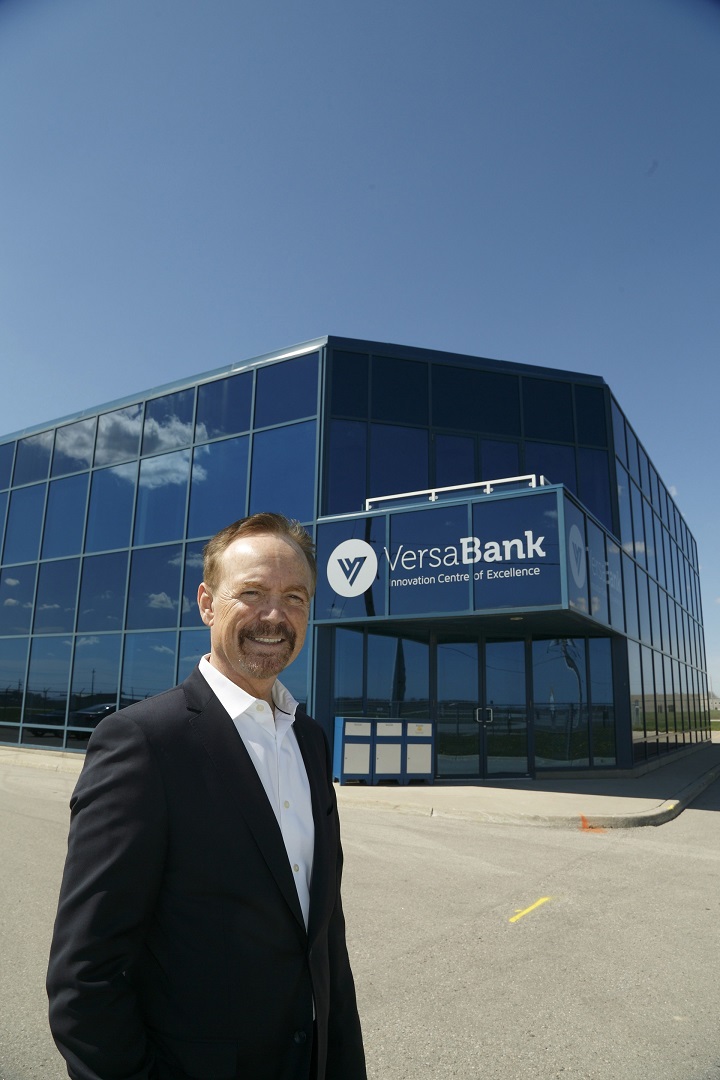TORONTO – Canadian branchless lender VersaBank is moving towards launching a blockchain-based vault to store digital properties, such as cryptocurrency, as “modern day bank robbers” hack into wallets and other places where these virtual valuables are kept.

The London, Ont.-based chartered bank said Monday its subsidiary VersaVault has signed two memorandums of understanding with a cryptocurrency exchange and a cryptocurrency-based fund, whose names it would not disclose.
David Taylor, VersaBank’s president and chief executive, said the agreements will facilitate feedback from two institutional holders of cryptocurrencies that will guide the development of VersaVault, which it intends to launch globally.
“We have two guinea pigs basically, two folks that have agreed to work with us, to make sure that as we develop the interface that its exactly what they want,” he said in an interview.
VersaBank says the blockchain-based vault works like a safety deposit box, where only the user has access or knows what is inside but its contents are protected from hackers and other risks.

Get breaking National news
One recent example of such risk is a January cyberattack on Tokyo-based Bitcoin and cryptocurrency exchange Coincheck, which lost hundreds of millions of dollars worth of cryptocurrency to hackers. It later said it would pay back $425 million US back to NEM coin owners who were impacted.
These incidents were the “big impetus” for VersaVault, said Taylor.
“Obviously, the value of those (crypto)currencies have been increasing dramatically, and it’s been attracting the attention of the modern-day bank robbers, modern-day thieves that have been finding their ways into these wallets,” he said.
The VersaVault, when launched, will also hold other digital valuables such as sensitive photographs or contracts, he added.
VersaBank intends to have a prototype by the end of June that’s functional for their two institutional partners, said Taylor. Over the course of a year, it then plans to expand its client base to five or six exchanges and a few funds, said Taylor.
Taylor would not discuss the VersaVault’s “secret sauce,” such as where the digital data would be stored, or how it would be stored, but said it would involve “numerous locations.”
However, the idea of storing cryptocurrencies such as Bitcoin at a bank seems at odds with its original premise. Bitcoin was launched in 2009, amid the fallout from the global financial crisis, by a mysterious person or group of people operating under the name Satoshi Nakamoto as a decentralized currency. It allowed transactions to be made anonymously, and without the need for the traditional banking system, faith in which had been eroded.
Taylor said he can understand why some cryptocurrency users would be wary of a bank, but said VersaBank isn’t a traditional financial institution. VersaBank, which has just 100,000 customers with deposits and 200,000 customers with lending products, operates largely online, he notes. At $1.8 billion in assets, VersaBank is much smaller than the Canadian banking behemoths, but that size differential also makes it easier to adopt new technologies, he said.
“I’m sure there are a fair number of purists in the world, that will say ‘Hell with it, I’m not dealing with those banksters’,” Taylor said. “But we are a really different kind of bank.”







Comments